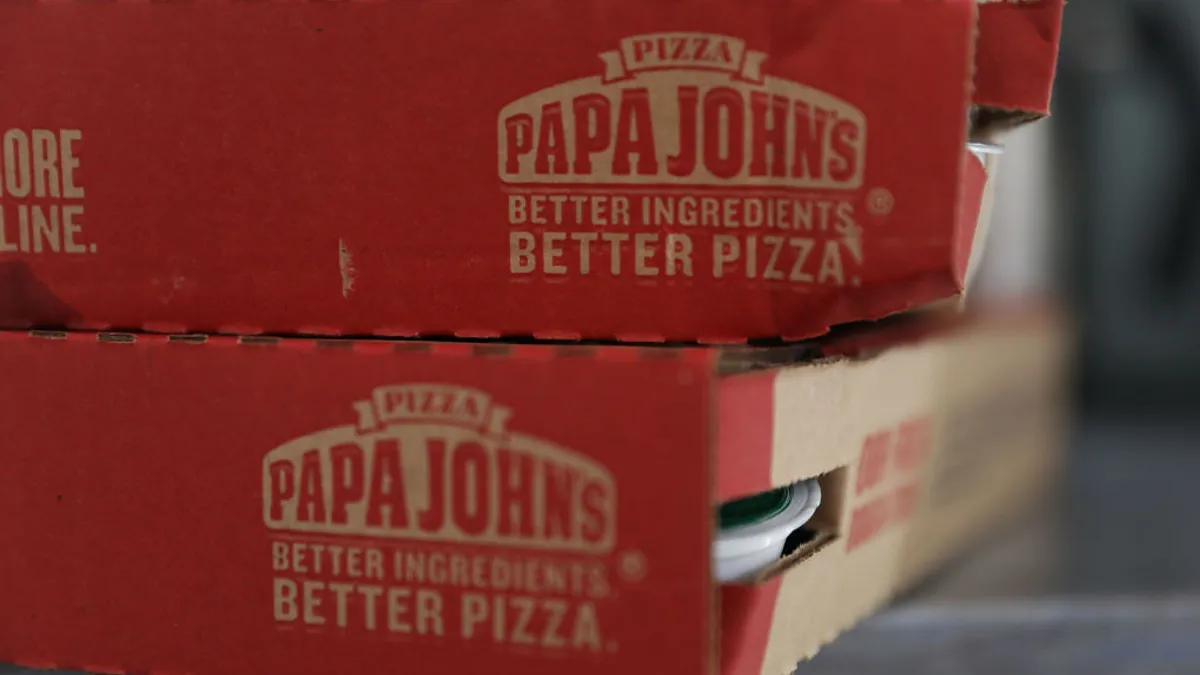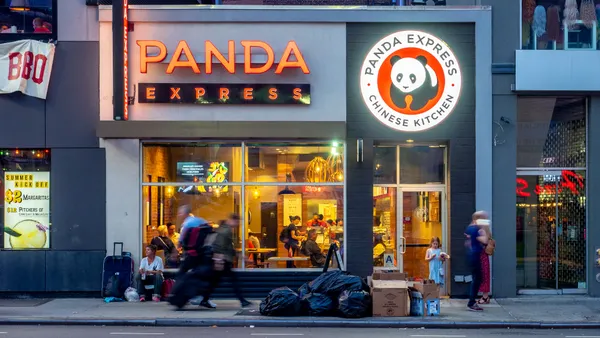Dive Brief:
- Papa Johns is expanding eligibility for its college benefit to employees who work as few as 10 hours per week, and to employees who have been employed for at least 60 days, the company announced Wednesday.
- The pizza chain is also offering additional educational perks, including an online high school program for employees who did not earn a high school diploma; academic coaches; and ESL and professional courses.
- Dough & Degrees allows Papa John’s employees to earn college degrees at no cost, a competitive benefits play as the restaurant industry struggles to attract and retain workers.
Dive Insight:
Roughly 250 employees are enrolled in Dough & Degrees, and about 12,000 are eligible for the program, a Papa John’s spokesperson wrote in an email. So far, about 60 workers have completed college degrees through this offering. The initiative has cost about $3.5 million since it began in 2019, according to the press release.
Papa Johns covers tuition, books and fees for employees at company-owned stores, and offers discounts on those costs to franchise workers. These discounts vary from franchise to franchise, and operators are free to set their own eligibility requirements for Dough & Degrees, the spokesperson said. The pizza chain operates 519 corporate stores in the U.S. compared to 2,837 franchised stores, according to its most recent earnings release.
The company’s program is administered by EdAssist by Bright Horizons, a firm that specializes in corporate education benefits. Dough & Degrees has existing partnerships with eCornell, the University of Maryland Global Campus, Purdue University Global, University of Phoenix, Colorado Technical University and Western Governors University, according to the spokesperson.
Though the staffing situation at Papa Johns has improved in recent months, staffing has been the company’s biggest challenge over the previous two years, Papa Johns’ CEO Robert Lynch said during the company’s Q2 earnings call.
“Our restaurants for two years were focused on doing everything they could to get as many hours in the store as possible,” Lynch said.
Improvements in benefits are a key element in companies’ attempts to retain talent during a period of high labor market turnover. But educational benefits were a point of competition among fast food companies even before the present labor shortage. In 2014, Starbucks partnered with Arizona State University to launch a tuition coverage program. McDonald’s debuted its Archways to Opportunity education benefit in 2015. Papa Johns and Chipotle followed suit in 2019.
In addition to an upward pressure on wages, recent competition for workers has spurred the addition of more specific benefits, as companies seek to lower turnover and target specific demographics for recruitment and retention. Brinker extended Chili’s educational benefits package to the families of employees earlier this year. Noodles & Company announced it would partially reimburse immigration costs, while Starbucks added reimbursement for travel expenses incurred by employees seeking abortion or gender affirming healthcare. The expansion of existing restaurant benefits programs and the addition of more specific benefits is likely, as the restaurant labor force continues to lag behind pre-pandemic highs.












